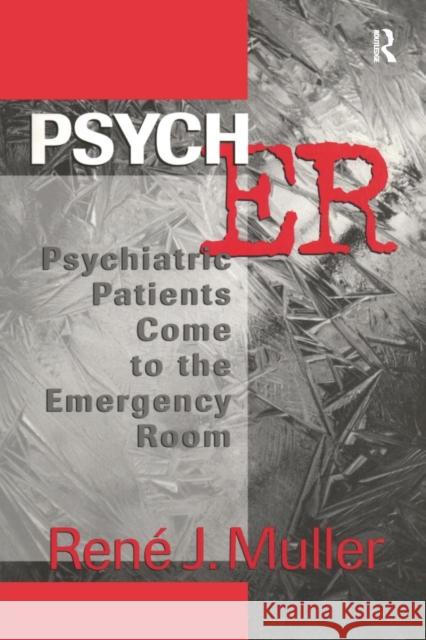Psych Er: Psychiatric Patients Come to the Emergency Room » książka
topmenu
Psych Er: Psychiatric Patients Come to the Emergency Room
ISBN-13: 9780881634037 / Angielski / Miękka / 2003 / 220 str.
Psych Er: Psychiatric Patients Come to the Emergency Room
ISBN-13: 9780881634037 / Angielski / Miękka / 2003 / 220 str.
cena 234,09
(netto: 222,94 VAT: 5%)
Najniższa cena z 30 dni: 216,55
(netto: 222,94 VAT: 5%)
Najniższa cena z 30 dni: 216,55
Termin realizacji zamówienia:
ok. 16-18 dni roboczych.
ok. 16-18 dni roboczych.
Darmowa dostawa!
Drawing on the experience of evaluating over 2000 emergency room patients, Rene Muller explores the important role of psychiatry in emergency room medicine. He discusses some of his most challenging cases, showing how psychiatry comes to the aid of medicine in managing the crises - real, imagined, and contrived - that are the everyday fare of clinicians who work in the ER. We are introduced to a world in which lies are exposed, manipulations revealed, diagnoses made, medications adjusted, and even very brief psychotherapy attempted.
Muller begins with patient narratives rooted in the mental disorders most commonly encountered in the ER: Depression, panic disorder, drug dependence, bipolar depression, bipolar mania, schizophrenia, and Alzheimer's dementia. These stories pave the way for more puzzling ER cases, which Muller gathers into sections of "Veiled and Bizarre Stories" and "Stories with a Medical Component." He introduces us to the meanings of ER malingering and offers hard-won insights into managing "dumps" (when patients are dumped into the ER by families, police, doctors) and "stumbles" (when patients' bizarre behavior lands them in the ER). The stories patients tell - and the questions these stories raise - drive Muller's text. A young man has seriously overdosed, but with what? Why has a successfully medicated schizophrenic suddenly begun hearing voices again? And what are we to make of a patient who is willing to risk death attempting to "drown" his hiccups by drinking up to 12 liters of fluid a day? For these and equally fascinating questions, Muller is a sure-handed guide, working his way through one ER challenge after another with psychiatric acumen and a balanced appreciation of the medical, custodial, socioeconomic, and legal dimensions of ER work. An intriguing account of the competing agendas that enter into the handling of emergencies, Psych ER is also a compilation of evocative patient stories about the subjective experience of being ill.










